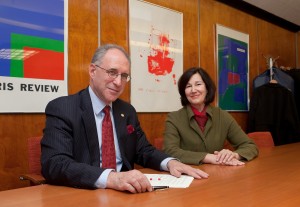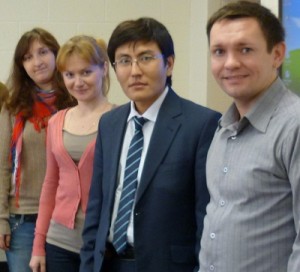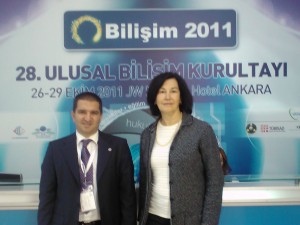Professor Charles Schweik has organized a new workshop.
The University of Massachusetts Amherst “Workshop” in the Knowledge Commons
What is the Knowledge Commons?
In recent years there has been increased attention around new models for production and sharing of information that can feed humanity’s “knowledge.” This interest is fueled by the ease in which we can now collaborate globally, founded on Internet-based technologies.
Recently the “Building Institutions for Sustainable Scientific, Cultural and Genetic Resources Commons” conference was held in Belgium (http://biogov.uclouvain.be/iasc/). In their call for papers, the conference organizers stated: “A variety of initiatives and policies have been proposed that are going beyond “open access”, and aim to facilitate more effective and extensive (global) sharing on local and global pools of not only scientific information and data but also genetic resources and cultural expressions. There is thus a need to examine a number of these proposals’ conceptual foundations from the economic and legal perspectives and to analyze the roles of the public domain and commons in facilitating sharing of scientific and technical data, information and materials.”
Areas that fall into what may be an emerging field of study include:
• Open access information and media
• Open education initiatives
• Commons-based peer production systems (e.g., open source software, wikis, etc.)
• The second enclosure movement and intellectual property rights (IP law)
• Open science (e.g., genetic commons)
• Open hardware
A good start to this topic is in Hess and Ostrom’s “Introduction: An Overview of the Knowledge Commons” at http://mitpress.mit.edu/books/chapters/0262083574intro1.pdf.
Why the label “Workshop”?
This is in tribute to Lin and Vincent Ostrom of Indiana University who co-founded the Workshop in Political Theory and Policy Analysis. Emphasis on faculty and students working in a “workshop environment” as co-producers (mentors and apprentices). No real hierarchy. Students play an equal role in the research process.
KC Workshop affiliated projects:
• The Open Education Initiative at UMass (Billings, Hutton, Sheridan, Quilter of the UMass Library; Schweik)
• Free and Open Source for Geospatial Academy (Schweik, Del Mar college, Texas)
• The Systematic Comparison of the Knowledge Commons” (Schweik, Kierstead), in collaboration with faculty in NYU, Syracuse U, and the Université Catholique de Louvain, Louvain-la-Neuve, Belgium
• Open Media (Fuentes-Bautista, others)
• Indigenous IP licensing (Jane Anderson, Anthropology)
• Open Hardware for Good (Blair, Morforte, Kierstead, Juan Camilo Cardenas)
People involved:
The UMass Knowledge Commons Workshop is just forming, but involves the following people:
Jane Anderson: Assistant Professor, Anthropology. Indigenous cultures and intellectual property
Don Blair: PhD student, Physics. Open Hardware for Science. NCDG Fellow
Diego Canabarro: visiting NCDG Fellow, Universidade Federal do Rio Grande do Sul
Juan Camilo Cardennes, Professor of Economics, University of Los Andes, Columbia
Dwi Elfrida: ICT Ministry, Central Government of Indonesia, MPPA student, NCDG Fellow
Jane Fountain, Professor, Political Science and Public Policy
Martha Fuentes-Bautista: Assistant Professor, Communcations
Jarice Hanson: Professor, Communications
Sarah Hutton: UMass Library
Megan Kierstead: MS Student, Eco, NCDG Fellow
Zach McDowell: Grad student, Communications, UMass. Also OIT Moodle support person.
Kevin Moforte: MPPA student
Laura Quilter: Intellectual Property librarian
Charlie Schweik: Associate Professor, Environmental Conservation and Center for Public Policy and Administration.
Matt Sheridan: Scholarworks librarian
Ian Walls: Web services librarian
Julie Woods: PhD student, Anthropology
 On April 24th, Sreela Sarkar (Department of Communication – UMAss, Amherst) is going to deliver a talk entitled “Technology and Modernity at the Boundaries of Global Delhi.”
On April 24th, Sreela Sarkar (Department of Communication – UMAss, Amherst) is going to deliver a talk entitled “Technology and Modernity at the Boundaries of Global Delhi.”




